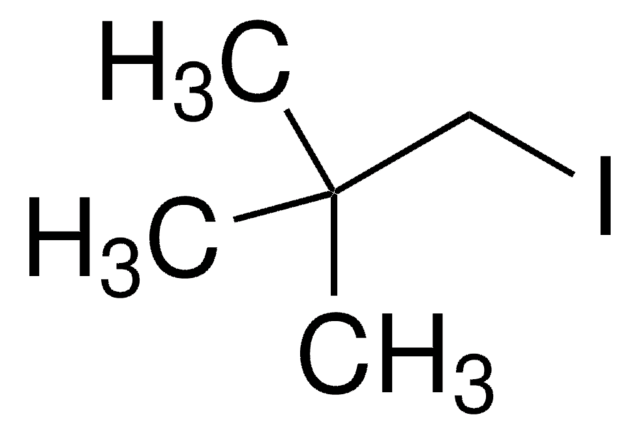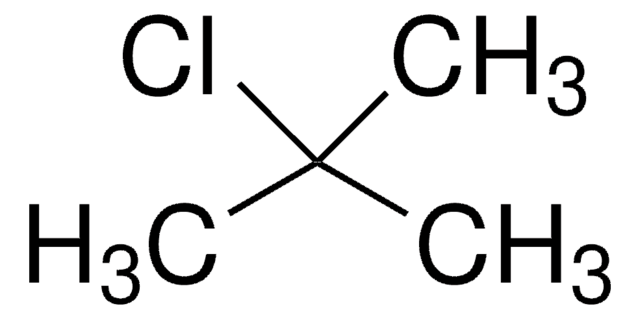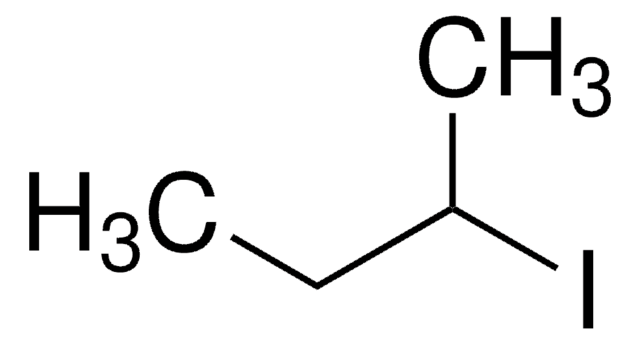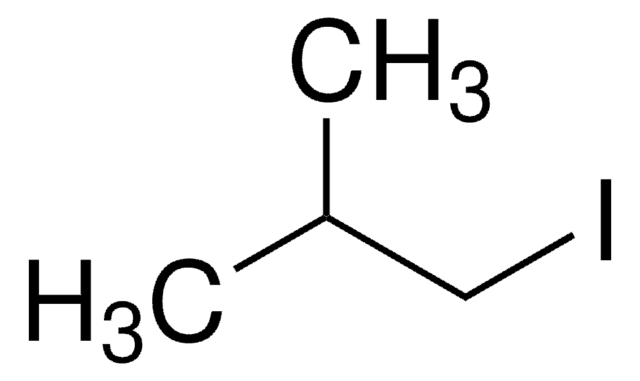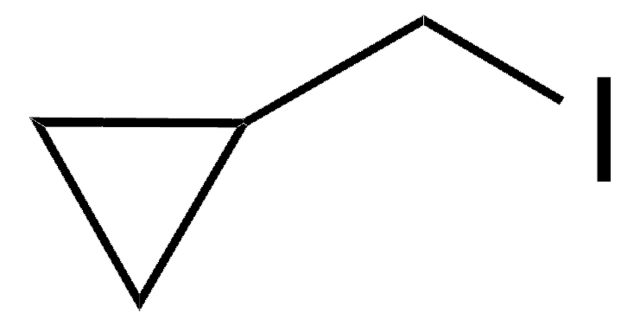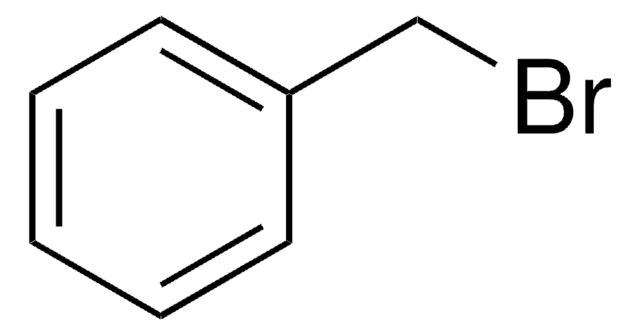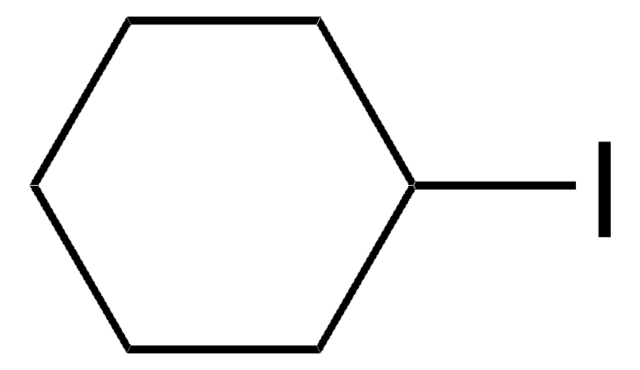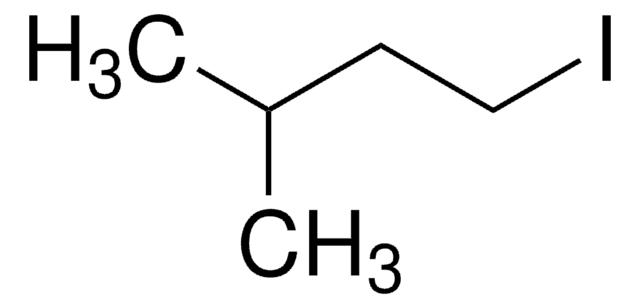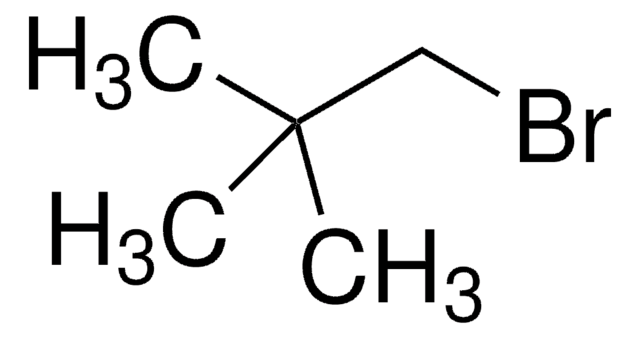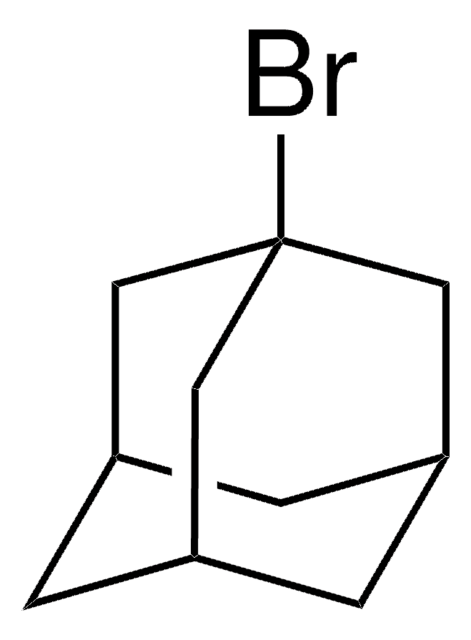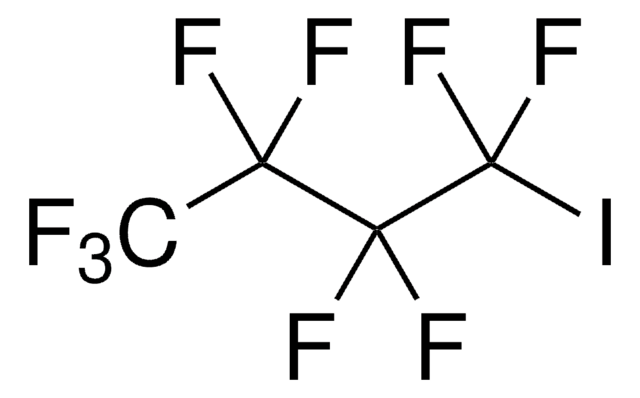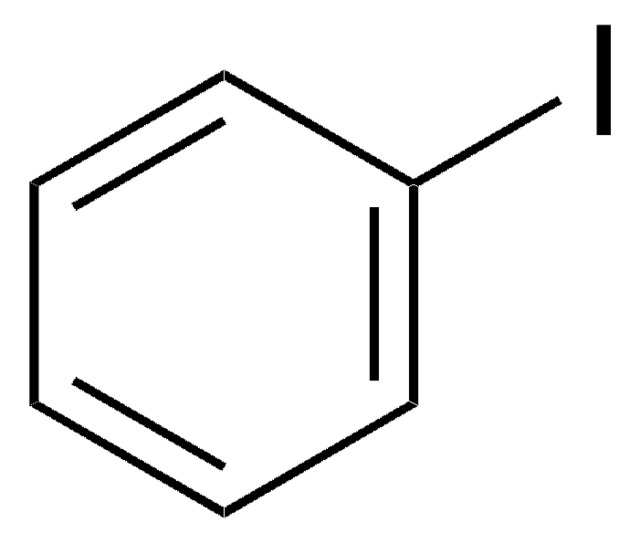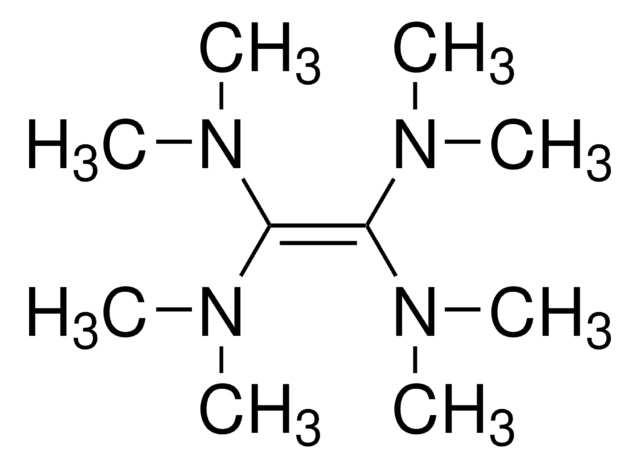245798
2-Iodo-2-methylpropane
contains copper as stabilizer, 95%
Synonym(s):
tert-Butyl iodide
Sign Into View Organizational & Contract Pricing
All Photos(2)
About This Item
Linear Formula:
(CH3)3Cl
CAS Number:
Molecular Weight:
184.02
Beilstein:
505950
MDL number:
UNSPSC Code:
12352100
PubChem Substance ID:
NACRES:
NA.22
Recommended Products
Assay
95%
form
liquid
contains
copper as stabilizer
refractive index
n20/D 1.491 (lit.)
bp
99-100 °C (lit.)
mp
−38 °C (lit.)
density
1.544 g/mL at 25 °C (lit.)
functional group
alkyl halide
iodo
SMILES string
CC(C)(C)I
InChI
1S/C4H9I/c1-4(2,3)5/h1-3H3
InChI key
ANGGPYSFTXVERY-UHFFFAOYSA-N
Looking for similar products? Visit Product Comparison Guide
Related Categories
General description
2-Iodo-2-methylpropane was degraded by reductive dehalogenation with nickel-aluminum alloy in potassium hydroxide solution.
Signal Word
Danger
Hazard Statements
Precautionary Statements
Hazard Classifications
Acute Tox. 4 Oral - Aquatic Acute 1 - Eye Irrit. 2 - Flam. Liq. 2 - Skin Irrit. 2
Storage Class Code
3 - Flammable liquids
WGK
WGK 3
Personal Protective Equipment
dust mask type N95 (US), Eyeshields, Gloves
Choose from one of the most recent versions:
Already Own This Product?
Find documentation for the products that you have recently purchased in the Document Library.
Customers Also Viewed
Michael H Abraham et al.
Physical chemistry chemical physics : PCCP, 23(5), 3311-3320 (2021-02-03)
We have obtained properties (or descriptors) of the transition states in the solvolysis of tert-butyl chloride, bromide and iodide. We show that all three transition states, in both protic and in aprotic solvents, are highly dipolar and are strong hydrogen
G Lunn et al.
American Industrial Hygiene Association journal, 52(6), 252-257 (1991-06-01)
Two techniques were investigated for degrading a number of halogenated compounds of commercial and research importance. Reductive dehalogenation with nickel-aluminum alloy in potassium hydroxide solution was used to degrade iodomethane, chloroacetic acid, trichloroacetic acid, 2-chloroethanol, 2-bromoethanol, 2-chloroethylamine, 2-bromoethylamine, 1-bromobutane, 1-iodobutane
Our team of scientists has experience in all areas of research including Life Science, Material Science, Chemical Synthesis, Chromatography, Analytical and many others.
Contact Technical Service
